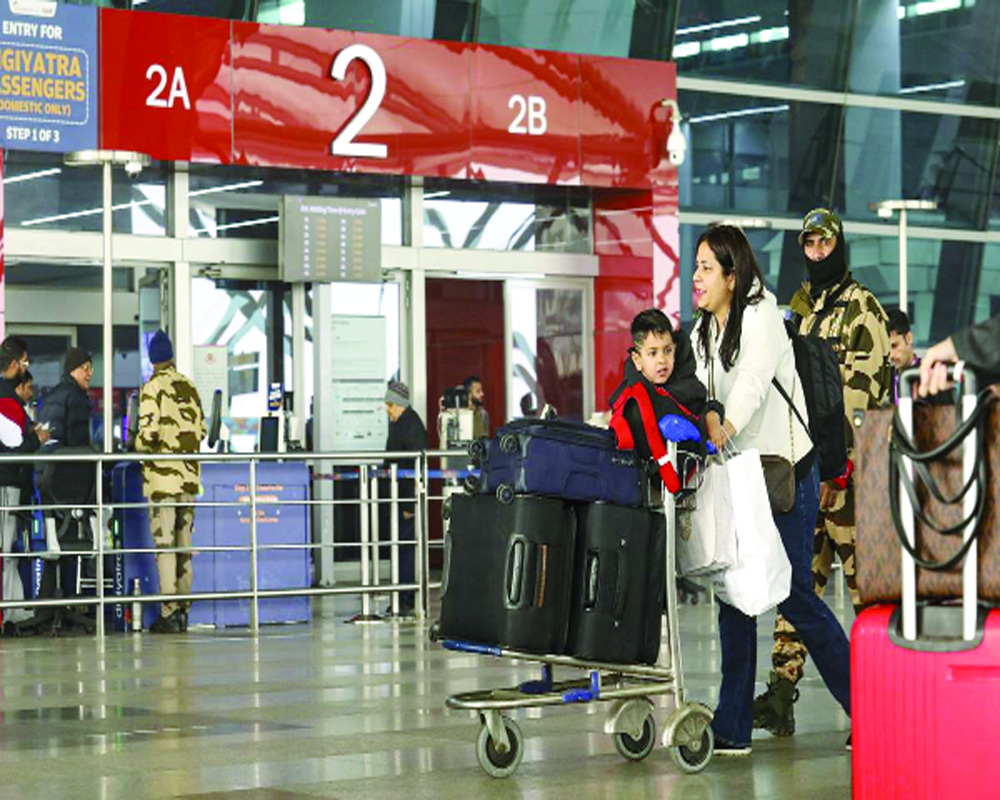Delhi airport’s Terminal 2 (T2) will remain closed for about six months for refurbishment works in the next financial year. Delhi International Airport Limited (DIAL) has unveiled an ambitious plan to
refurbish Terminal 2 or T2 of the Indira Gandhi International Airport which was built by the Airports Authority of India (AAI) four decades ago.
During the renovation, T2 will temporarily close for four to six months, with operations being shifted to the newly expanded Terminal 1 to minimise disruption. Sources said the refurbishment work is set to commence in the 2025-26 financial year, with completion targeted by the second quarter. The upgrades are expected to be completed by the second quarter of Financial Year 2026.
The Directorate General of Civil Aviation (DGCA) has asked the operator of IGI airport to undertake a comprehensive overhaul of Terminal 2 (T2). The financial year starts from April 1, 2025.
According to DIAL, the closure will not significantly impact airport operations as Terminal 1 (T1) will accommodate the additional load of passengers.T2, which was constructed 40 years ago by the AAI, will undergo extensive renovations to improve the passenger experience and increase capacity for future growth. T1 and T2 currently serve domestic flights while Terminal 3 (T3) handles international flights.
The decades-old terminal will undergo significant upgrades aimed at elevating the passenger experience and increasing the airport’s capacity to meet future growth demands,” said DIAL in a Press statement.
Key elements of the refurbishment include the installation of six state-of-the-art Passenger Boarding Bridges (PBBs) featuring autonomous docking technology, the first of its kind in India. These advanced PBBs will offer features such as elevated ramps for wheelchair access and adjusted cabins for a seamless experience. The terminal will also receive mechanical and electrical upgrades, including new HVAC systems for better air quality and enhanced fire safety measures.
According to airport operator, DIAL will procure six state-of-the-art Passenger Boarding Bridges (PBBs) from South Korea, incorporating advanced features including elevated ramps to assist wheelchair passengers; Adjusted cabins for a seamless passenger experience; Autonomous docking technology (first time in India); Side-covering cushions for enhanced safety and aesthetics and swing doors for operator safety and a better aesthetic appeal.
The terminal’s aesthetics will be upgraded with modern ceilings and skylight designs, creating a more appealing environment. The civil works include smart washrooms, advanced flooring, and better road connectivity will improve passenger convenience. Canopies at the forecourt will ensure a dry, comfortable experience for passengers, especially during the monsoon.
T2 opened in May 1986, and was initially used for international flights till July 2010, when those operations shifted to T3. After this, the terminal remained operational for only three months every year, catering to Haj flights. It was then shut for a few years, and in 2017, was renovated, and now-bankrupt airline Go First and a few IndiGo flights started operations from here.
Officials said IGI is scheduled to host the Airports Council International (ACI) Asia- Pacific & Middle East Regional Assembly conference in mid-April, and officials from the ministry of civil aviation confirmed that the expanded Terminal 1 (T1) will be ready by early April to ensure that the country’s largest airport gets the best display.
On completion of the ongoing work, T1 will have a capacity of 40 million passengers annually. T2’s renovation will begin only by the end of April or May once the ACI conference concludes,” officials confirmed.
DIAL CEO Videh Kumar Jaipuriar said the refurbishment of the four-decade-old T2 is the need of the hour. “The decades-old terminal will undergo significant upgrades aimed at elevating the passenger experience and increasing the airport’s capacity to meet future growth demands,” he said.
DIAL CEO said the overall passenger experience will be enhanced by upgrading key infrastructure, improving operational efficiency, and elevating passenger comfort. “With the terminal’s projected passenger capacity expected to reach its peak by FY 2025-26, these enhancements will be crucial in supporting the growing demand for air travel, particularly for domestic passengers,” he said.
Last year, the improvement work of Delhi airport’s Terminal 1 was done. Functions in T1 were resumed from August17, in phases. A large section of Terminal 1’s roof collapsed in the early hours of 28 June following heavy rain, leading to the closure of the entire terminal. One person was killed and eight others were injured in the accident.
























